François-Michel Rignol - Déodat de Séverac: L'Oeuvre pour Piano (2015) [Hi-Res]
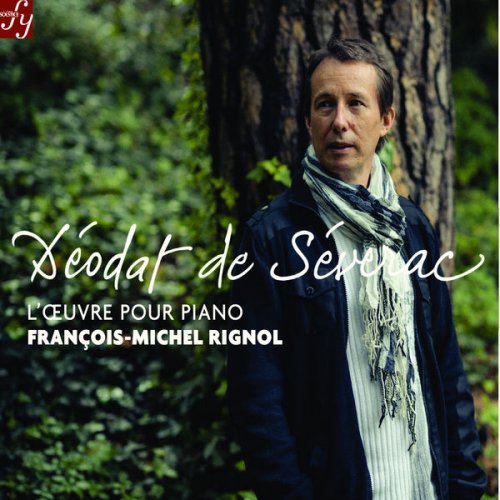
Artist: François-Michel Rignol
Title: Déodat de Séverac: L'Oeuvre pour Piano
Year Of Release: 2015
Label: Solstice
Genre: Classical
Quality: FLAC (tracks) / 24bit-96kHz FLAC (tracks+booklet)
Total Time: 03:10:10
Total Size: 523 MB / 2.93 GB
WebSite: Album Preview
Tracklist:Title: Déodat de Séverac: L'Oeuvre pour Piano
Year Of Release: 2015
Label: Solstice
Genre: Classical
Quality: FLAC (tracks) / 24bit-96kHz FLAC (tracks+booklet)
Total Time: 03:10:10
Total Size: 523 MB / 2.93 GB
WebSite: Album Preview
En Languedoc (1903-04) [34:03]
Cerdaña (1908-11) [34:20]
Le Chant de la Terre (1900-01) [24:59]
Les Naïades et le Faune indiscret (1908) [8:38]
Baigneuses au Soleil (1908) [7:24]
Sous les Lauriers Roses (1919) [16:40]
En Vacances (1911-21) [34:57]
Stances à Madame Pompadour (1907) [6:43]
Pippermint-Get [5:04]
Le Soldat de Plomb (1904) [14:02]
(piano four hands, with Émilie Carcy)
Ma Poupée Chérie [3:29]
Déodat de Séverac or Sévérac, depending on your source, is one of those figures who stands apart from the turn of the century giants such as Debussy. He never warmed to the Parisian cultural ferment, preferring to inhabit his beloved Languedoc region and explore his own personal artistic journey. I have to admit knowing little about him before becoming involved in a programme of ensemble arrangements of French piano works, among which was included the atmospheric Coin de cimetière, au printemps from En Languedoc. Further exploration is highly rewarding, with often warmly affectionate expression adding luminosity to Séverac’s already impressionistic touch.
François-Michel Rignol has already released a selection of piano pieces by Déodat de Séverac on the Solstice label (see MusicWeb Reviews @ torrents.php?id=72730811), but this 3 CD survey is of entirely new recordings. The title ‘L’oeuvre pour piano’ would suggest a complete set, but we are missing the Piano Sonata in B flat minor which, though an early student work, would seem to demand inclusion. For genuine completeness, Jordi Masó’s recordings on Naxos (see reviews: Vol. 1, Vol. 2, and Vol. 3) are a good reference, and my main comparison with Rignol’s set. Aldo Ciccolini’s classic Erato/EMI recording from the 1970s is an old favourite for many and can hardly be said to need replacing. There are few who can equal his fine touch in this music, but with the poetry also comes a certain feel of melancholy which I find hard to shake. The older recordings still sound excellent and this seems to be something of a bargain from some sources at the moment.
Rignol’s recording is set fairly close to the piano, so there is no shortage of detail and the bass depth is impressive. The playing delivers its own atmosphere, and there is a nice chapelle acoustic which however only comes into its own in rare moments of staccato and silence. Comparing this with the Naxos recordings with Jordi Masó is quite a big contrast, with Masó given more distance, creating a grander scale and an easier passport into that all-important atmosphere on which Séverac’s music thrives, though the results are not entirely consistent between the three volumes. Timings in general do not differ wildly between the two players, but points of detail in interpretation are telling. Looking at that Coin de cimetière, au printemps and you can hear Rignol’s more restless accompaniment, teasing expressive points from accompaniment patterns which would seem to demand the more even flow allowed by Masó. Both players have a good sense of the work’s shape and the climaxes are both magnificent, but Masó’s sound is that degree more generous, and delivers a more orchestral feel compared to Rignol’s rather piano-bound picture.
Picking another example, En vacances is an illustration of Séverac in smaller-scale mood. Intimacy and playfulness are the main elements, with in Book 1 at least a list of subjects ranging from a walk in the park to Grandmother’s caresses. I like both performers in these lighter sketches, though again it is Masó who is more disarming and straightforward, communicating more in the simplicity of his approach where Rignol is more searching, digging out gems of expression in little details which can prove a little distracting at times. The incomplete Book 2 evokes the spirit of Chopin and is more technically demanding in the few pieces extant. Again, Séverac is often in a joyful mood here, and Masó is just that much more fun than Rignol.
The superficial conclusion is that if you are looking for the 3 CD Déodat de Séverac piano experience then the Naxos collection would seem to satisfy more than this Solstice set. I am however reluctant to leave this without admiring it on its own terms. Much of Séverac’s music apparently emerged from improvisation at the piano, and where other players might have a different take on its manner of performance François-Michel Rignol can create a kind of ruminative wistfulness, a kind of ‘on the spot’ sense of invention which may well be closer to the composer’s own style. I may be imagining things, but to my ears there is an authenticity here which is hard to resist. This is piano played as piano, not for grand extra-musical effect. The recording helps recreate the feeling of being gathered around the piano listening to the composer at work – after each performance of which we all clamour that he should write down these wonderful inventions, with a promise of no more food and wine until he has finished.
Not all of these pieces are serious or semi-serious works, and there is great fun to be had with the Pippermint-Get waltz, and where Rignol is joined by Émilie Carey in Le Soldat de plomb there is a lovely interaction between the two players and that extra richness of sonority which seems very Poulenc and French. Major cycles such as Le Chant de la Terre are played with authority and great character, the recording is of a kind which really brings the piano right into your living room, so if you appreciate a personal 1-1 recital feel this will be the one for you. Nice picture-disc print on the discs, substantial booklet notes with photos both sepia ancient and colourfully modern and chunky foldout packaging finish off this ultimately rather attractive package.
François-Michel Rignol has already released a selection of piano pieces by Déodat de Séverac on the Solstice label (see MusicWeb Reviews @ torrents.php?id=72730811), but this 3 CD survey is of entirely new recordings. The title ‘L’oeuvre pour piano’ would suggest a complete set, but we are missing the Piano Sonata in B flat minor which, though an early student work, would seem to demand inclusion. For genuine completeness, Jordi Masó’s recordings on Naxos (see reviews: Vol. 1, Vol. 2, and Vol. 3) are a good reference, and my main comparison with Rignol’s set. Aldo Ciccolini’s classic Erato/EMI recording from the 1970s is an old favourite for many and can hardly be said to need replacing. There are few who can equal his fine touch in this music, but with the poetry also comes a certain feel of melancholy which I find hard to shake. The older recordings still sound excellent and this seems to be something of a bargain from some sources at the moment.
Rignol’s recording is set fairly close to the piano, so there is no shortage of detail and the bass depth is impressive. The playing delivers its own atmosphere, and there is a nice chapelle acoustic which however only comes into its own in rare moments of staccato and silence. Comparing this with the Naxos recordings with Jordi Masó is quite a big contrast, with Masó given more distance, creating a grander scale and an easier passport into that all-important atmosphere on which Séverac’s music thrives, though the results are not entirely consistent between the three volumes. Timings in general do not differ wildly between the two players, but points of detail in interpretation are telling. Looking at that Coin de cimetière, au printemps and you can hear Rignol’s more restless accompaniment, teasing expressive points from accompaniment patterns which would seem to demand the more even flow allowed by Masó. Both players have a good sense of the work’s shape and the climaxes are both magnificent, but Masó’s sound is that degree more generous, and delivers a more orchestral feel compared to Rignol’s rather piano-bound picture.
Picking another example, En vacances is an illustration of Séverac in smaller-scale mood. Intimacy and playfulness are the main elements, with in Book 1 at least a list of subjects ranging from a walk in the park to Grandmother’s caresses. I like both performers in these lighter sketches, though again it is Masó who is more disarming and straightforward, communicating more in the simplicity of his approach where Rignol is more searching, digging out gems of expression in little details which can prove a little distracting at times. The incomplete Book 2 evokes the spirit of Chopin and is more technically demanding in the few pieces extant. Again, Séverac is often in a joyful mood here, and Masó is just that much more fun than Rignol.
The superficial conclusion is that if you are looking for the 3 CD Déodat de Séverac piano experience then the Naxos collection would seem to satisfy more than this Solstice set. I am however reluctant to leave this without admiring it on its own terms. Much of Séverac’s music apparently emerged from improvisation at the piano, and where other players might have a different take on its manner of performance François-Michel Rignol can create a kind of ruminative wistfulness, a kind of ‘on the spot’ sense of invention which may well be closer to the composer’s own style. I may be imagining things, but to my ears there is an authenticity here which is hard to resist. This is piano played as piano, not for grand extra-musical effect. The recording helps recreate the feeling of being gathered around the piano listening to the composer at work – after each performance of which we all clamour that he should write down these wonderful inventions, with a promise of no more food and wine until he has finished.
Not all of these pieces are serious or semi-serious works, and there is great fun to be had with the Pippermint-Get waltz, and where Rignol is joined by Émilie Carey in Le Soldat de plomb there is a lovely interaction between the two players and that extra richness of sonority which seems very Poulenc and French. Major cycles such as Le Chant de la Terre are played with authority and great character, the recording is of a kind which really brings the piano right into your living room, so if you appreciate a personal 1-1 recital feel this will be the one for you. Nice picture-disc print on the discs, substantial booklet notes with photos both sepia ancient and colourfully modern and chunky foldout packaging finish off this ultimately rather attractive package.
Download Link Isra.Cloud>>>
Déodat de Séverac FLAC.rar - 523.9 MB
Déodat de Séverac Hi-Res.rar - 2.9 GB
Déodat de Séverac FLAC.rar - 523.9 MB
Déodat de Séverac Hi-Res.rar - 2.9 GB
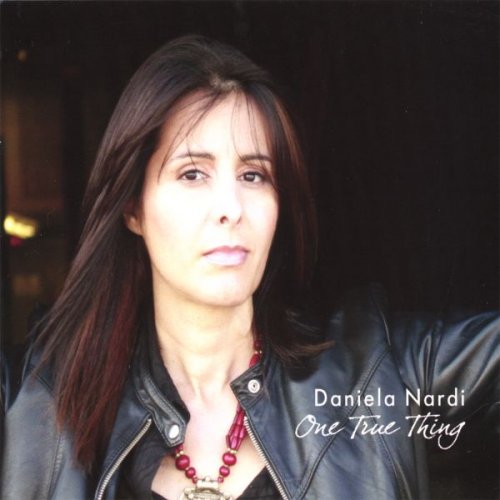
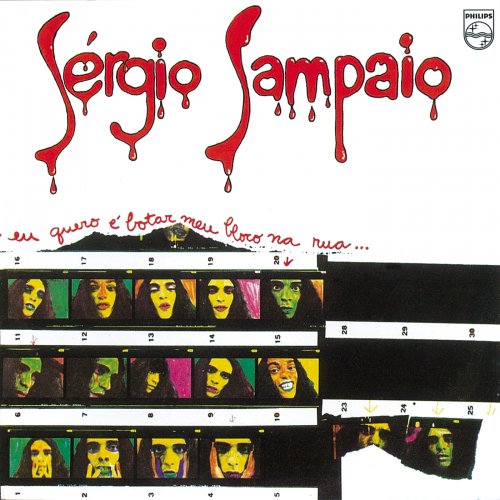
![Karin Krog, John Surman, Rob Luft & Rob Waring - Tomorrow's Yesterday (2026) [Hi-Res] Karin Krog, John Surman, Rob Luft & Rob Waring - Tomorrow's Yesterday (2026) [Hi-Res]](https://www.dibpic.com/uploads/posts/2026-02/1770018384_aet0hkqmwovku_600.jpg)

![Cory Wong - Lost In The Wonder (2026) [Hi-Res] Cory Wong - Lost In The Wonder (2026) [Hi-Res]](https://www.dibpic.com/uploads/posts/2026-02/1770057207_cover.jpg)
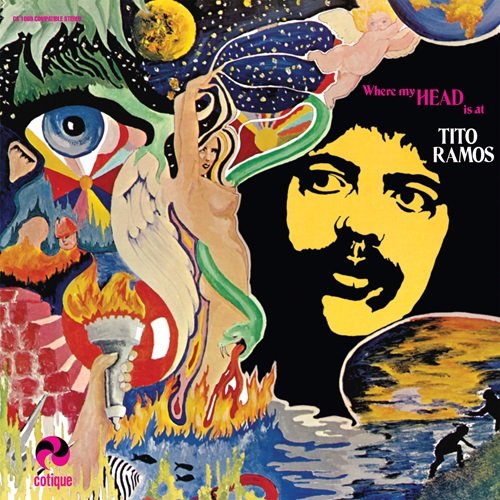
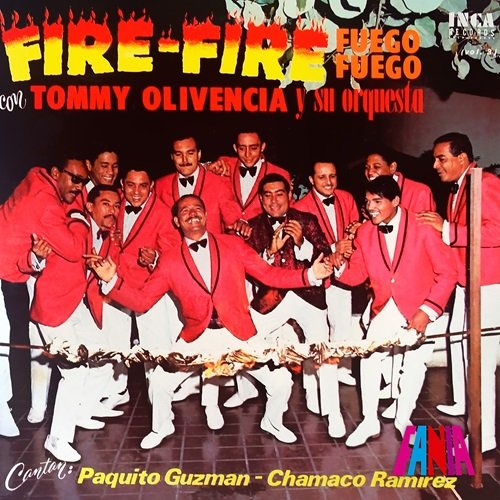

![Mimika Orchestra - Medzotermina (2025) [Hi-Res] Mimika Orchestra - Medzotermina (2025) [Hi-Res]](https://img.israbox.com/img/2026-02/02/vi2nypd84ymca2vap8s28zj4d.jpg)